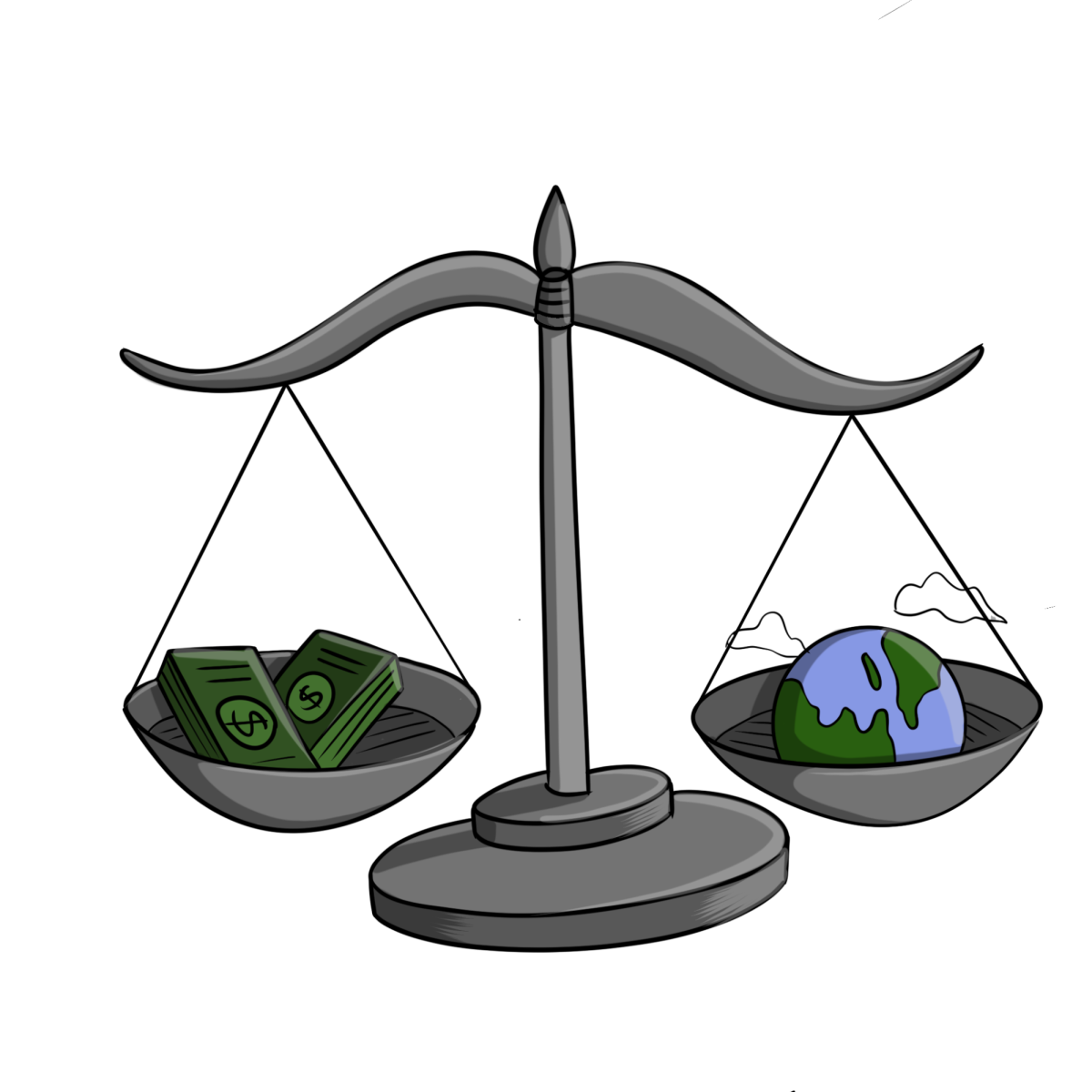picture incidents on the forefront. But what about the smaller details behind the scenes? A survey conducted with a sample group of freshmen students showed that around 75% were comfortably aware of the geopolitical climate, but 100% of them were unfamiliar with the economic background behind these global affairs regarding the question of de-dollarization. If that term sounds unfamiliar to you, don’t despair. In an interview with Geopolitics and Game Theory Teacher Mr. Dunkin, we seek to clear the waters just a bit more so that, hopefully, this unfamiliarity can be vanquished.
Imagine a world where the US dollar isn’t the undisputed king of currencies. That’s the idea behind de-dollarization, a hot topic brewing at the upcoming BRICS summit in Kazan, Russia. BRICS, an alliance of powerhouses – Brazil, Russia, India, China, and South Africa – is stirring the pot in the financial world, and their moves could have a major impact on your wallet, your travel plans, and even the global balance of power.
Right now, the US dollar is king in the international trade realm. Everyone uses it because, well, that’s just how things have been. It’s like the default language for buying and selling stuff across borders. But some countries, especially those in BRICS, are beginning to turn on the currency. Because the US has so much control over the dollar, it gives them a lot of power. This means that the US can use its influence to, say, sanction countries it doesn’t like, making it harder for them to do business internationally. Mr. Dunkin explains it this way: “The US dollar is sort of the reserve currency of the world. It’s used for most international transactions, it’s the most trusted throughout the globe, and central banks keep reserves of the US Dollar to back their banking system… de-dollarization is a move away from the US Dollar for various political and potentially economic reasons by the BRICS countries.”
Essentially, BRICS wants more options. They’re pushing for things like using their own currencies (such as the yuan) for trade with each other, and even with other countries. They’re even exploring the idea of creating a special BRICS digital currency – a sort of online wallet filled with a brand new type of money just for them, which would give them even more control over their economies and make them less reliant on the US.
Currently, the US dollar has shifted into a sort of unipolar world, where it dominates in both the military and economic sense. De-dollarization suggests a bipolar or potentially multipolar financial world with multiple strong currencies. As Mr. Dunkin puts it, “I think geopolitically and strategically, countries prefer choices to not having choices, and so it makes sense that a unipolar world is not one that is gonna last because the players in the world geopolitically abhor the idea of giving that much power to one entity.” This especially applies regarding current global events like the Russo-Ukrainian War; the US sanctions placed on Russian trade of crude and oil products doesn’t give them much freedom for how they conduct those transactions, so finding other countries who would be willing to engage with Russia underneath a currency which doesn’t limit them would be seen as more beneficial.
The BRICS summit is just the beginning of this story. This shift in power could be a peaceful evolution, or it could lead to more competition and even conflict between different economic blocs. While BRICS seems united on the de-dollarization front, there are some cracks in the facade. Mr. Dunkin cautions that, “the BRICS countries represent a smaller chunk of the global economy and have less of a history operating together – that’s not saying that they can’t do it, but I think they’ve got a lot of obstacles to overcome before we would see it as a major player.” Establishing a new reserve currency requires a robust financial system and trust, which BRICS may struggle with in the short term. Additionally, the creation of a shared currency means that countries will need to “make compromises”, which could lead to some internal struggle.
Whether the BRICS’ de-dollarization efforts will end in success or failure, it is without a doubt a sign from emerging economies to the rest of the world, one which pushes for a more balanced financial world with more options, innovation, and voices for those who want a seat at the global financial table. Will this be a revolution or a ripple in the global financial pond? Only time, and the complex dance of economies, will tell.



